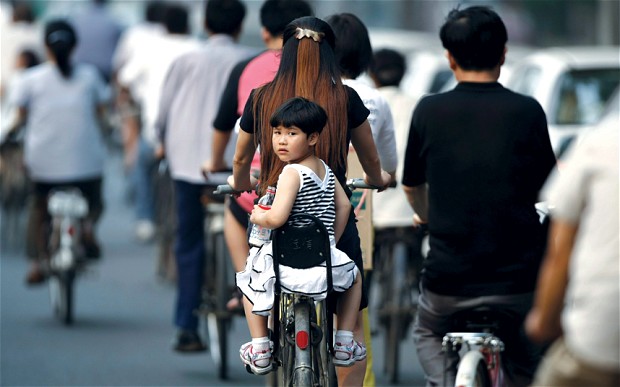One-Child Policy Of China Ended
After over three decades, the ruling Communist Party of China effectively ended its one-child policy, which would give couples the opportunity to have two children.
The removal of the restrictions on the number of children couples can have was made to enhance the balanced development of the population of China. This was revealed through an official communication from the party, which was distributed though the Xinhua News Agency. The announcement followed the end of a meeting in Beijing that dealt with the development plans of China in the next five years.
The policy was instituted in 1980 in an effort to limit the number of children couples in China could have to minimize the strain on resources as the population of China expanded rapidly.
The one-child policy was gradually eased in recent years as China experienced economic growth and as the country had to deal with its aging population. The newer generations of Chinese also felt they did not have to accept a high level of involvement of the state in their lives.
While the change in the policy was viewed by Press Secretary Josh Earnest of the White House as a positive step, they are looking forward to the day when limitations are completely removed. He said the United States continues to go up against the use of coercion in limiting births, including forced sterilization and abortion. These policies are directly connected to universal human rights, Earnest added.
However, Amnesty International said Chinese women continue to be at risk of invasive methods of birth control and forced abortion. The organization revealed that reports of forced abortions and sterilizations have continued to emerge in recent years.
Amnesty International China researcher William Nee said the move to change the one-child policy of China is not enough since invasive and forced methods of contraception can still be imposed on couples with two children. These methods include forced abortions, which can be likened to torture. He added the state should not have the authority to regulate the number of children couples can have.
The news on the change immediately went viral right after it was announced. A number of people were not happy with the change since they were either too poor or old to have another child. Others said the shift may lead to more environmental damage and increase the burden on social services.
A 50-yearold said she remembered when she was forced to have her tubes tied by local government officials around two decades ago. She added that with the change in the policy, she is already too old to have a second child. Others were thrilled with the change in the one-child policy saying the change should have been implemented by the government a long time ago.
An estimate from the United Nations revealed that the falling birth rate of China may result to a population that age faster than other developing countries in the world. The decline is not expected to stabilize until the middle of the 21st century.
The population of India is expected to surpass the population of China within seven years, according to the UN. The population of India is currently at 1.3 billion while the population of China is at 1.4 billion.
In 2013, China allowed couples to have two children if one of the parents was a single child. After the one-child policy was changed last year, applications for a second child in Beijing reached 53,000. Of those who applied, 48,392 couples were given permission to have a second child.
China revealed that its policy resulted to at least 400 million fewer births and brought millions out of poverty due to lesser demand on its resources. But, a number of researchers said the birth rate would still decline even without the one-child policy due to the economic development of China and increased levels of education, which made the work place appealing to more women.
